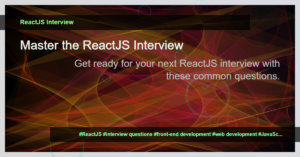Introduction
Job interviews can be nerve-wracking, but with proper preparation and practice, you can confidently tackle any interview question thrown your way. In this comprehensive guide, we will cover some of the most commonly asked interview questions and provide you with strategies and examples to help you craft impressive answers.
- Tell me about yourself
This question is often used as an icebreaker and gives employers an insight into your background and experience. It’s essential to have a well-prepared and concise response that highlights your relevant skills and achievements. For example:
“I am a dedicated and motivated professional with five years of experience in project management. In my previous role, I successfully led a team of 10 in delivering various high-profile projects on time and within budget. I am known for my strong organizational skills and ability to multitask effectively, which has contributed to my track record of exceeding targets and client expectations.”
For more examples and a detailed breakdown on how to answer this question, check out this article.
- What are your strengths?
When discussing your strengths, it’s important to link them to the requirements of the job you’re applying for. Choose strengths that align with the company’s values and emphasize your ability to perform in the role. For example:
“One of my key strengths is my ability to communicate effectively. I have excellent interpersonal skills and can easily build rapport with colleagues and clients. This skill has been instrumental in my previous roles, where I successfully managed cross-functional teams and fostered a positive work environment.”
For more examples and tips on showcasing your strengths, check out this article.
- How do you handle conflict?
Conflict resolution is an important skill in the workplace, and employers want to ensure that you can handle challenging situations professionally. When answering this question, provide an example of a time when you successfully resolved a conflict and highlight the steps you took to achieve a positive outcome. For example:
“In my previous role, I encountered a disagreement between two team members who had conflicting opinions on a project. I facilitated a calm and open discussion, allowing each person to express their views. I then proposed a compromise that satisfied both parties and allowed us to move forward with the project. Through effective communication and active listening, I was able to resolve the conflict and maintain a productive working relationship.”
For more tips and examples on handling conflict, check out this article.
- Why do you want to work for our company?
Employers want to know that you have done your research and genuinely want to contribute to their organization. When answering this question, highlight specific aspects of the company or its culture that align with your career goals and values. For example:
“I am drawn to your company’s focus on innovative technologies and commitment to sustainability. Your reputation for fostering a collaborative work environment and investing in employee development aligns with my own values. I believe that by joining your team, I can contribute my skills and expertise while continuing to grow professionally.”
For more insights on answering this question effectively, check out this article.
- What is your greatest weakness?
When discussing your weaknesses, it’s important to emphasize how you have overcome or are actively addressing them. Show self-awareness and a willingness to learn and grow. For example:
“I used to have difficulty delegating tasks because I felt the need to control every aspect of a project. However, I have since learned the importance of collaboration and leveraging the strengths of others. I now actively seek opportunities to delegate and trust my team members, which has resulted in better outcomes and improved efficiency.”
For more examples and tips on answering this question, check out this article.
Conclusion
Preparing for an interview can significantly increase your chances of success. By familiarizing yourself with common interview questions and practicing your answers, you’ll be better equipped to showcase your skills and experiences to potential employers. Remember to always tailor your responses to the specific job requirements and company culture.
Good luck with your interview!






